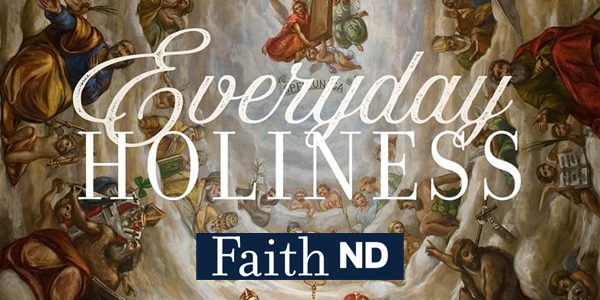In the latest insightful segment of “Raising Resilient Children”, titled “Pathways Out of Poverty,” Dr. Neil Boothby and co-host Dr. Carrie Quinn, M.D. ‘96 welcomed esteemed guest Rev. Fr. Lou DelFra, C.S.C to delve into the vital discourse on child resilience and development against the backdrop of poverty.
The episode, which is the third part of the podcast series, intertwined the threads of science and theology, exploring the essential role they play in forging sustainable pathways out of poverty for children living at the margins of society. Kicking off the discussion was Fr. DelFra, who brought to light his collaboration with a scientist on a book that unearthed revelations on the realities often missed by those who do not experience life in developing regions. He cited how liberation theologies have been pivotal in highlighting the struggles of the less fortunate and challenging both science and theology to step up their responsibilities toward these populations.
Boothby, an advocate for science’s role in understanding the importance of formative experiences, pointed out the significant potential for impactful interventions. He drew attention to efforts in countries like Kenya and Haiti wherein science and theology are converging to better young lives. Reinforcing this notion, the Global Center for the Development of the Whole Child aims at large-scale programs to alleviate poverty and bring about beneficial change, despite grappling with the typical limitations of funding and grants.
Boothby and Dr. Quinn envisioned Notre Dame as a leading force in combining scientific advancements with theological wisdom, specifically focusing on crucial aspects of child-rearing practices. Considering the enduring effects of early experiences in a child’s first thousand days on their life outcomes, the university’s incorporation of expertise is poised to play a vital role in shaping the future of child welfare with clarity.
The guests also brought attention to the stark contrast between well-established healthcare systems in developed nations and the minimal neonatal care available in low-resource countries. The Catholic Church was acknowledged for its noteworthy role as a globally influential force in child development and education, providing substantial educational contributions beyond government oversight.
Emphasizing the foundational societal pillars of family, church, and school, the conversation shifted towards exploring how these institutions can be leveraged to empower parents and foster resilient behaviors in children. This line of thinking was complemented by discourse on initiatives aimed at customizing education to accommodate the busy schedules of mothers, with a focus on alternative research methods such as positive deviance studies.
In the U.S., where the healthcare system is relatively stronger, the focus shifted to medical residents catering to the poorest families. Dr. Quinn reflected on the bridging of gaps in training, underscoring the importance of interactions in child development. An initiative close to her heart, the curriculum she helped develop for health care professionals, was shared alongside the Sparks Parent Video Series, a practical toolkit for maternal and paternal nurturing, introduced during medical engagements.
Fr. DelFra connected Catholic social teachings’ emphasis on human relationships and community with scientific findings, highlighting the church’s capacity to aid people in vulnerable situations, as well as the church’s inherent dignity of every person and the responsibility of their well-being that aligns with scientific evidence showcasing the necessity of nurturing relationships for optimal child development.
Dr. Quinn brought the conversation to a close by remarking on Notre Dame’s unique potential to contribute to global challenges. She pointed to the university’s strategic plan and dedication to a mission-driven community, underscoring Notre Dame’s commitment to enacting positive change for the greater good as part of its core identity.
As the conversation concluded, Christine Trinter, Associate Professor and Acting Director of the Institute for Educational Initiatives, expressed gratitude to the guests and closed the discussion, directing the audience to ThinkND for more information. The session not only illuminated the intersections of science, theology, and social justice but also framed an actionable blueprint for building resilience in children experiencing poverty. Listeners were left with a sense of urgency and hopefulness for the roles they, along with institutions like Notre Dame, can play in carving pathways out of poverty for the betterment of future generations.



